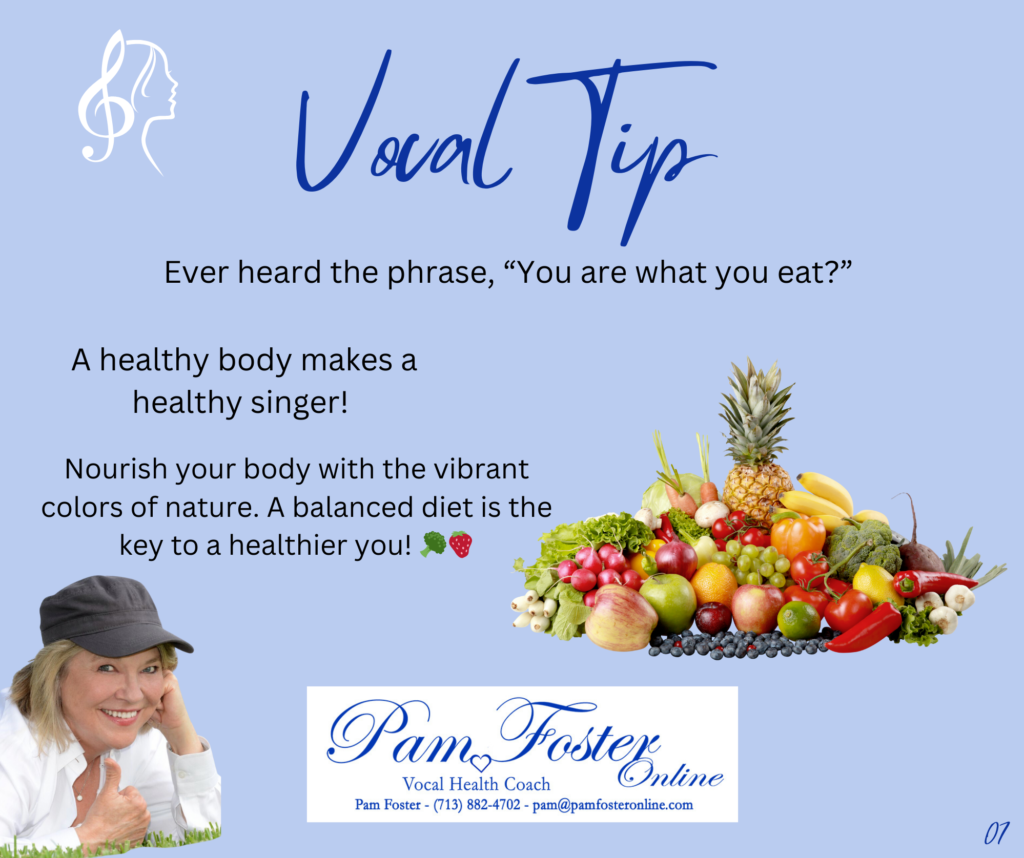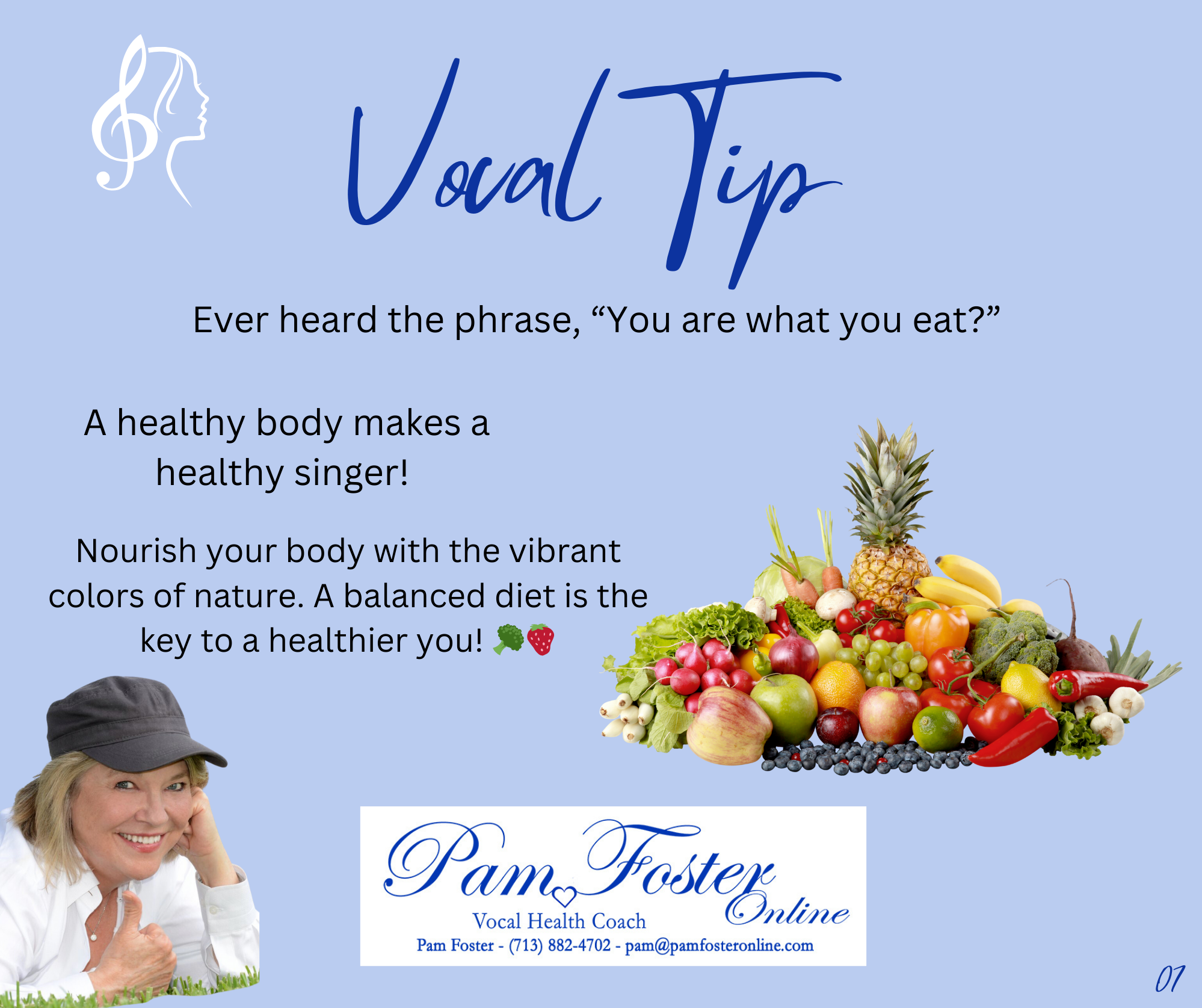Have you ever heard the phrase, “You are what you eat?”
As a singer, your voice is your instrument, and just like any instrument, it requires care and attention to perform at its best.
One crucial yet often overlooked aspect of vocal health is diet. What you eat and drink directly impacts your vocal performance, stamina, and overall health.

A singer’s diet should provide enough energy to get through long rehearsals and performances without fatigue.
A well-balanced diet with lean proteins, whole grains, fruits, and vegetables will help maintain stamina and support vocal performance.
So, what should you eat, and what should you avoid?
Inflammation can impact vocal performance, making it harder to sing efficiently and precisely. Focus on incorporating anti-inflammatory foods into your diet to keep inflammation in check.
- Eat Anti-Inflammatory Foods: Foods rich in antioxidants, such as berries, leafy greens, and nuts, can help reduce inflammation, including the vocal cords.
- Fruits and vegetables like cucumbers, watermelon, and leafy greens can help maintain hydration, which is essential for vocal health.
- Avoid Processed Foods: Processed and fried foods can cause inflammation, affecting your overall health and vocal ability.
Do you need some healthy snack ideas?
I’ve put together a one-page snack guide with all kinds of easy-to-make, under-100-calorie snacks. You can pick it up right here!
Just click the blue button below to grab yours today.
Your voice is a precious instrument; caring for it involves more than just vocal exercises and proper technique.
Paying attention to your diet and making mindful food choices can protect your voice, enhance your performance, and ensure your vocal health for years.
Remember, a singer’s diet is as much a part of their routine as warming up or practicing scales—so eat well, stay hydrated, and sing your best!
If you want more tips like these, check out my Vocal Tips Guide.
PAM FOSTER

